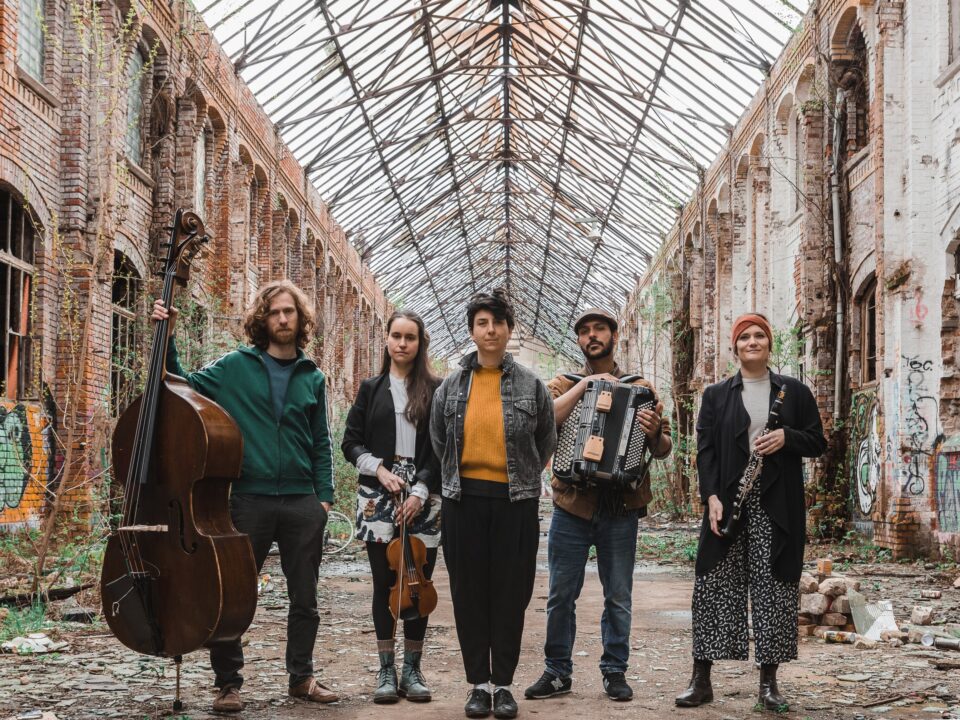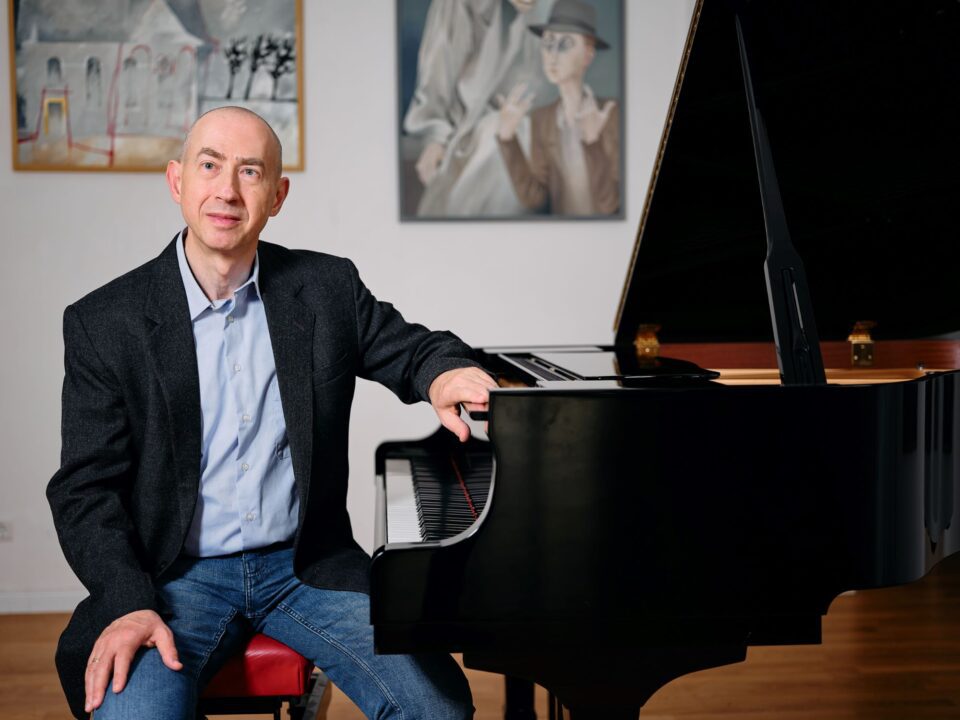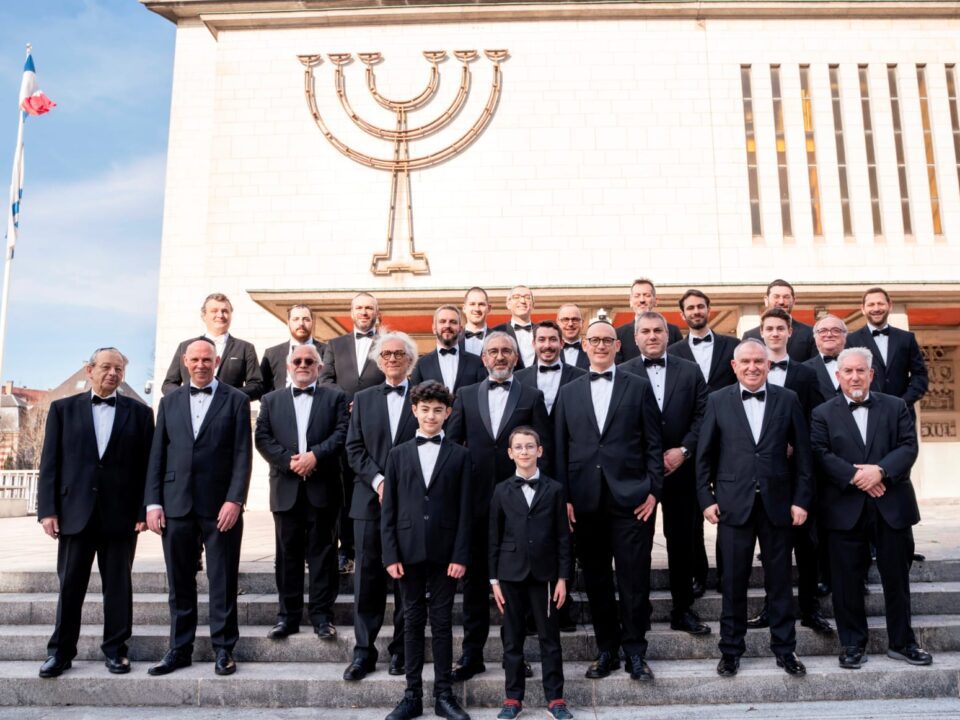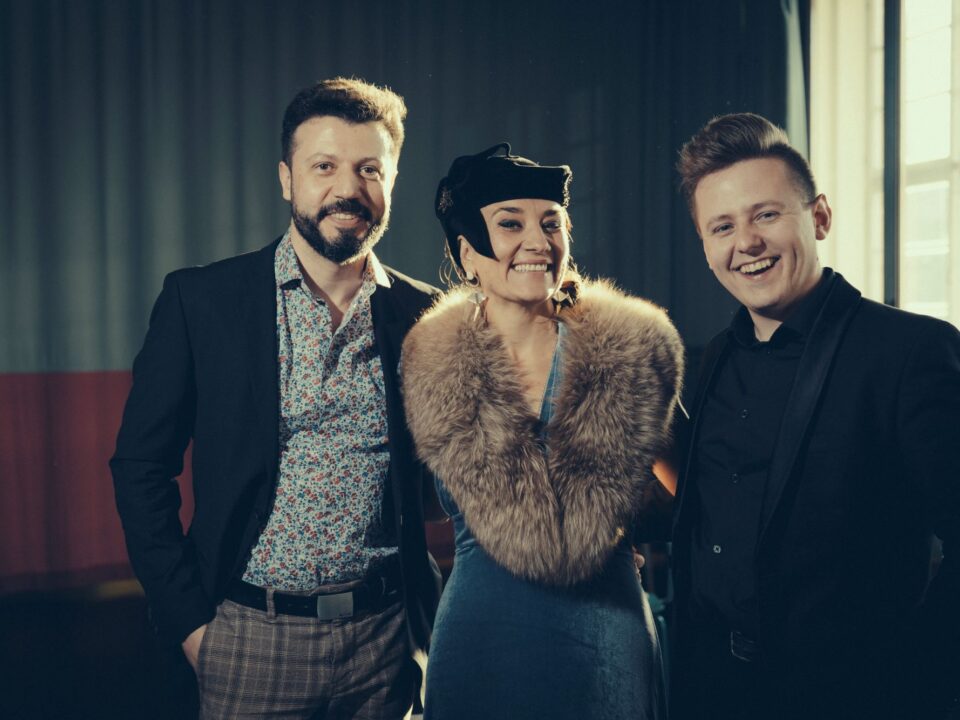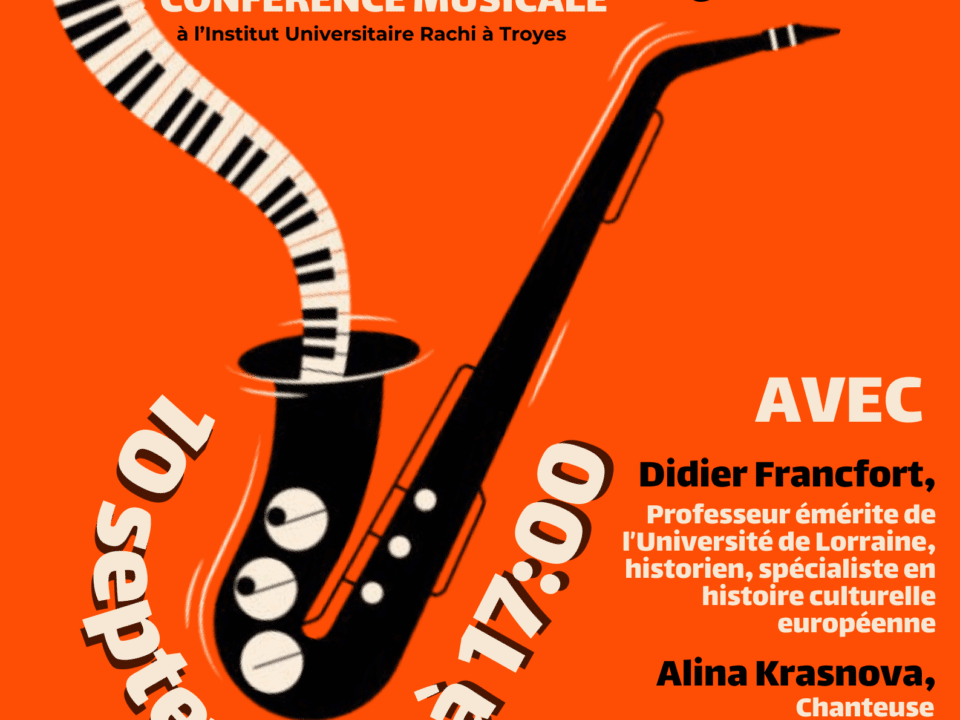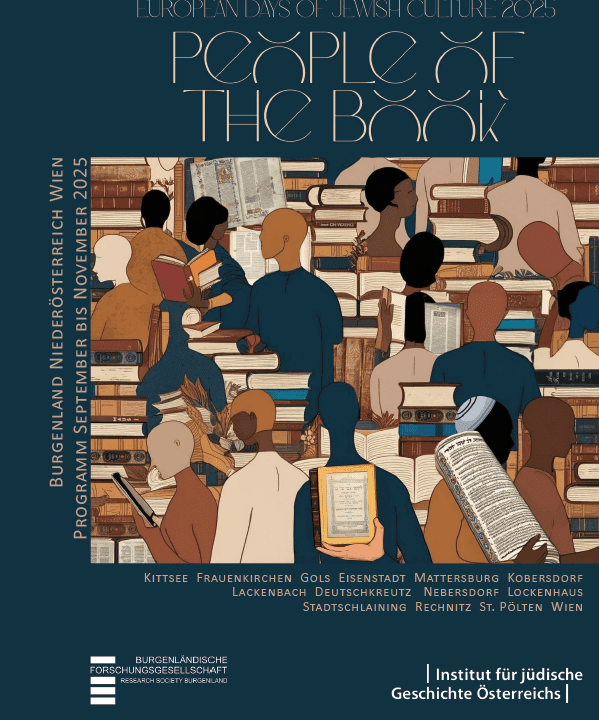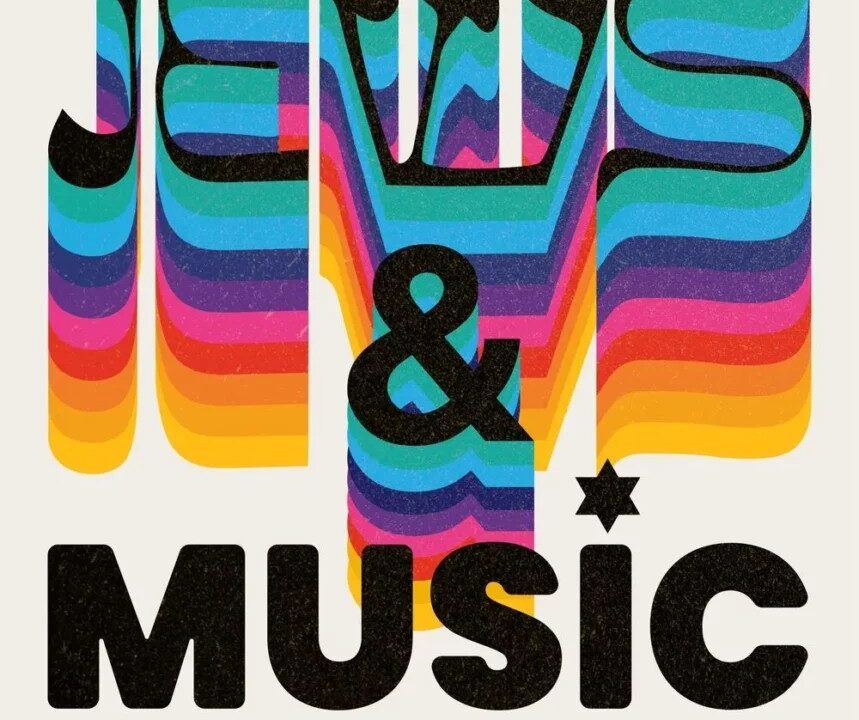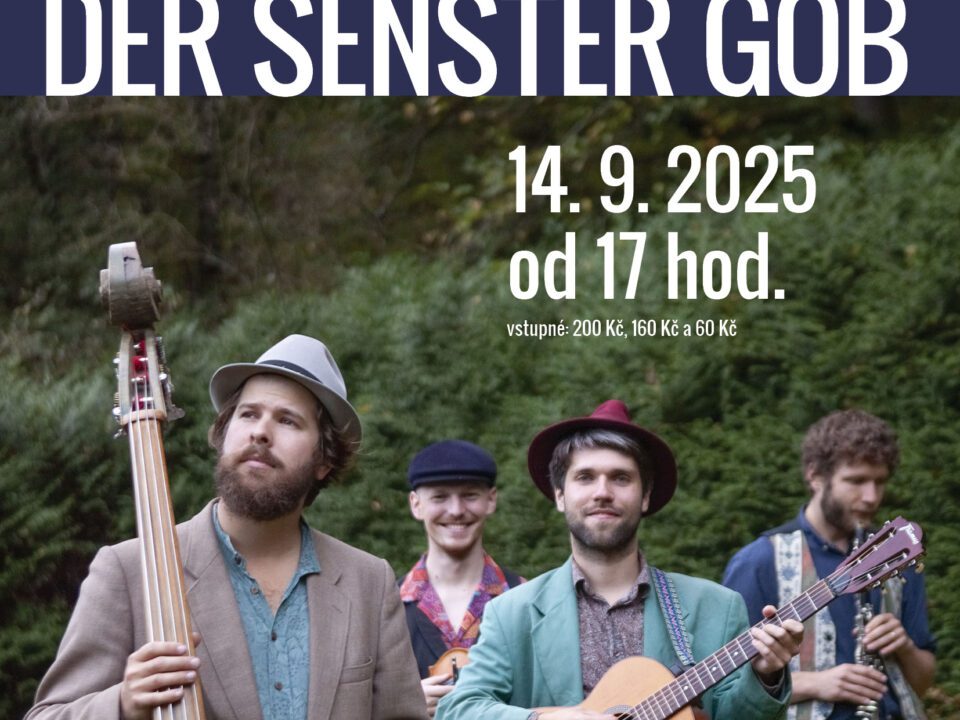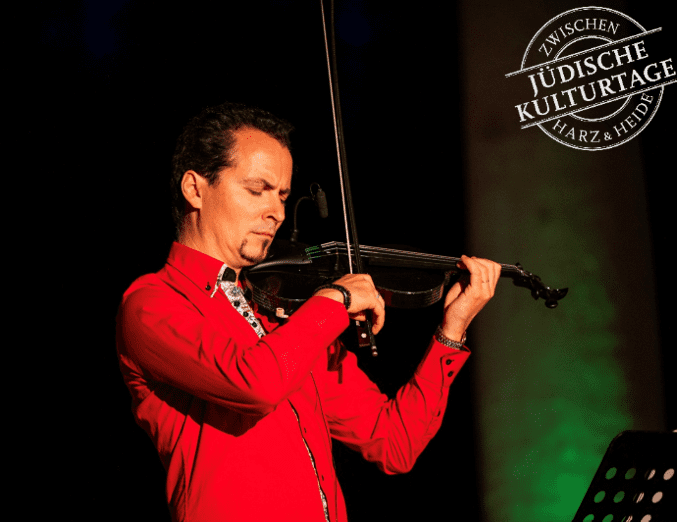In this two-part concert programme, Herje Mine explores the musical roots of two of its band members and presents Ladino songs, songs in the language of the Sephardim who can be found in many countries around the world. The second part of the concert focuses on Pijjutim – poems intended for liturgical use that Jewish people often encounter: at Shabbat meals, but also on the radio, at school and even in proverbs. The themes of the various poems are sometimes ancient, but still relevant today. Love, happiness, war, forgiveness, the conflict between faith and everyday life, etc. – all of this is reflected in beautiful rhymes and metaphors.
In this two-part concert programme, Herje Mine explores the musical roots of two of its band members and presents Ladino songs, songs in the language of the Sephardim who can be found in many countries around the world. The second part of the concert focuses on Pijjutim – poems intended for liturgical use that Jewish people often encounter: at Shabbat meals, but also on the radio, at school and even in proverbs. The themes of the various poems are sometimes ancient, but still relevant today. Love, happiness, war, forgiveness, the conflict between faith and everyday life, etc. – all of this is reflected in beautiful rhymes and metaphors.
Migration is a central theme in Jewish history. Whether through flight, expulsion or the search for a better life, Jewish existence has always been shaped by migration.
Every migration is ambivalent: it means loss of home, personal suffering and deprivation, but at the same time it opens up new opportunities, possibilities for development and a broadening of one's horizons. Mobility as a prerequisite for cultural exchange also plays an important role in the history of Jewish music.
The Via Regia, the most important west-east connection in Europe, is symbolic of Jewish history and the development of Jewish musical cultures along its route. In addition to cities with significant Jewish communities such as Frankfurt/Oder, Breslau, Krakow and Lemberg, Leipzig in particular – at the intersection of the Via Regia and the Via Imperii – became a central location for Jewish life and Jewish music.
Le Chant Sacré is a male choir founded in 1951 and consisting of around twenty passionate singers – both adults and children. Its repertoire includes 19th-century Ashkenazi Jewish liturgy as well as Ladino melodies, songs from Central Europe and modern, Oriental and Hasidic compositions. The choir is one of the last synagogue choirs in Europe and performs at most of the Sabbath services in the large Synagogue de la Paix in Strasbourg, as well as at celebrations, weddings and ceremonies. The choir thus makes a significant contribution to the preservation of Ashkenazi and Alsatian liturgy.
The TATE-MAME project [Yiddish: parents, Polish: mum and dad] is a musical exploration of singer Karolina Trybała's family history, whose ancestors came from Galicia in Eastern Europe. On stage, Karolina presents favourite songs from her ‘LIDER BIKHL’: klezmer classics, old tangos, songs from Jewish theatres in Lviv, Krakow and New York, where many Galician artists emigrated. She interprets well-known and forgotten musical treasures in Yiddish and Polish, but also in German, English and Hebrew.
“When Piaf sang klezmer”(date to come)
“When Piaf sang klezmer” presented by Didier FRANCFORT
Doctor of contemporary history, professor of contemporary history at the University of Lorraine.
Alina KRASNOVA , singer.
Konzert in der Friedensburg Schlaining
Nähere Infomationen unter: www.forschungsgesellschaft.at/edjc
In Kooperation mit: CONCENTRUM und Verein Zukunft Schlaining
L’ECUJE a le plaisir d’accueillir la chanteuse et auteure Shirel en avant-première exceptionnelle, à l’occasion de la sortie de son livre événement « Jews & Music » (parution officielle le 10 juin 2025). Shirel viendra partager avec le public parisien ce projet aussi personnel qu’universel, qui explore la connexion profonde entre le peuple juif, la musique et l’âme du monde.
Véritable hommage vibrant à 150 artistes juifs ayant marqué l’histoire musicale – de Leonard Cohen à Barbra Streisand, en passant par Bob Dylan ou les chansons de Disney –, cet ouvrage bilingue (français-anglais), richement illustré, célèbre la diversité, la résilience et la créativité d’un peuple dont les chansons nous ont tous fait rêver, danser, pleurer.
Shirel nous proposera un moment unique, mêlant lecture, anecdotes, chansons et échanges intimes autour de ce projet né comme un cri d’espoir et de lumière après les événements tragiques d’octobre 2023.
Concert gypsy and klezmer band Der Šenster Gob
Mark Kovnatskiy ist ein viel-gereister und hochbeachteter Violinist, zudem auch Komponist und Experte für jiddische Tänze. In diesem Konzert widmet er sich seinen bis dato aktuellsten Kompositionen im Rahmen des Programms Di Naye Yidishe Melodyes (die neuen jiddische Melodien, Jiddisch). Es besteht aus eigenen Kompositionen geschrieben im Stil traditioneller Klezmer-, chassidischer, moldawischer, ukrainischer und nachöstlicher Musik.
Kartenvorverkauf beim Stadtarchiv Celle stadtarchiv@celle.de Tel. 05141 124700 oder direkt in der Synagoge
Eintritt: Erwachsene 15,00 € / Schüler und Studenten 10,00 €
Foto: © Shendl Copitman
Diese Veranstaltung ist Teil der Jüdischen Kulturtage zwischen Harz und Heide 2025.
Veranstalter: Stadt Celle – Stadtarchiv/Jüdische Gemeinde Celle e.V.
